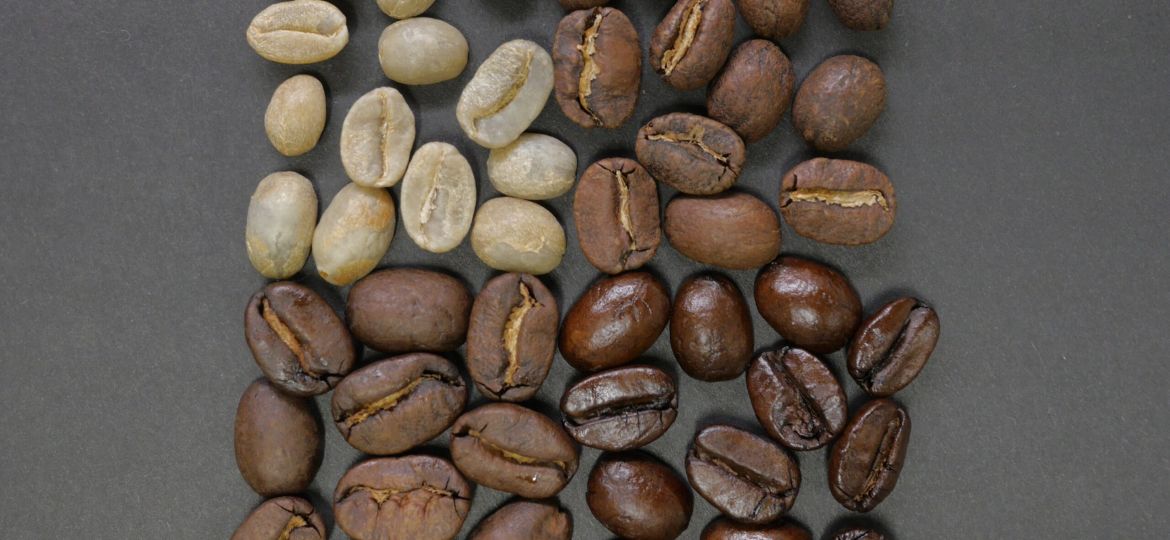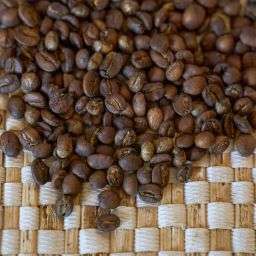
Understanding the nuances of coffee bean expiration is crucial for anyone looking to enjoy a premium coffee experience. Unlike many perishable goods, coffee beans don’t “expire” in the traditional sense but rather degrade in quality over time.
This subtle distinction is essential for maintaining the rich flavor and aroma that coffee aficionados cherish. This guide delves into the factors affecting coffee bean shelf life and offers actionable advice to extend the freshness of your beans, ensuring every cup you brew is vibrant and full of life.
Key Takeaways
- Coffee Bean Freshness Matters: Over time, coffee beans lose their robust flavor and aromatic qualities, underscoring the importance of understanding their shelf life.
- Influential Factors: The longevity of coffee beans is influenced by roast level, exposure to oxygen and light, temperature, and the way they are stored.
- Whole vs. Ground Beans: Opting for whole beans can significantly prolong the freshness of your coffee, thanks to their reduced exposure to the environment.
- Storage Solutions: Employing proper storage methods is key to extending the life of your coffee beans, maintaining their quality for as long as possible.
- Freezing as a Preservation Method: Correctly freezing coffee beans is a proven strategy to keep them fresh, locking in their intrinsic flavors for extended periods.
Do Coffee Beans Expire?
While coffee beans don’t “expire” in the conventional sense, their quality, flavor, and aroma do deteriorate over time. This decline is not due to the beans becoming unsafe to consume but rather the natural degradation of their oils and compounds, which are responsible for their rich taste and smell. Understanding this gradual process is fundamental to ensuring that your coffee remains as delightful as the day it was roasted.
The misconception that coffee beans expire like milk or eggs can lead to confusion about their shelf life. In reality, the best-by date on coffee packaging is an indicator of when the beans are at their peak quality rather than a hard expiration date. After this period, the beans may not spoil, but their flavor profile will start to diminish, affecting the overall coffee experience.
Proper storage plays a crucial role in preserving the quality of coffee beans. Factors such as exposure to air, light, and moisture can accelerate the aging process. To combat this, storing your beans in an airtight container away from direct sunlight and in a cool, dry place is recommended. Additionally, grinding beans just before brewing can help maintain their freshness and ensure a more flavorful cup of coffee.
While coffee beans don’t expire in the strictest sense, their quality does fade over time. By understanding the factors that influence their shelf life and employing effective storage methods, you can enjoy delicious, aromatic coffee for longer. Whether you prefer a light, medium, or dark roast, proper care and storage of your coffee beans are key to a superior coffee experience.
Roast Impact on Expiration
The shelf life of coffee beans is significantly influenced by their roast level. Light roasts, with their drier exterior, tend to expire more slowly compared to their darker counterparts. This slower rate of expiration can be attributed to the minimal oil surface on light roast beans, which reduces their interaction with air and moisture.
Dark roasts, on the other hand, have a higher oil content on the surface, which can accelerate the spoilage process due to increased susceptibility to environmental factors.
Impact of Grinding on Shelf Life
Grinding coffee beans increases their surface area, exposing more of the bean to oxygen. This exposure accelerates the oxidation process, leading to a quicker loss of flavor and aroma. Therefore, ground coffee tends to stale much faster than whole beans.
To preserve freshness and extend shelf life, it is advisable to grind coffee beans just before brewing rather than grinding them in advance.
Light and Oxygen Exposure
Light and oxygen are two critical factors that can accelerate the degradation of coffee beans. Exposure to light, especially direct sunlight, can degrade the essential oils and flavors in the beans, leading to stale and flavorless coffee.
Similarly, oxygen exposure promotes oxidation, which diminishes the coffee’s quality by degrading its aromatic compounds. Storing coffee beans in opaque, airtight containers can significantly mitigate these effects, preserving the beans’ freshness and flavor.
Temperature and Storage Methods
Proper storage is paramount in extending the shelf life of coffee beans. Temperature control plays a crucial role in this regard, as extreme temperatures can lead to the deterioration of the beans. The ideal storage condition for coffee beans is in a cool, dark place, away from any direct heat sources.
Airtight containers are recommended for storage to prevent exposure to oxygen and moisture, which can further accelerate spoilage. By adhering to these storage methods, coffee enthusiasts can significantly prolong the freshness and enjoyability of their beans.
The longevity and quality of coffee beans are influenced by several factors, including roast level, grinding, and exposure to light, oxygen, and improper temperatures. By understanding these factors and implementing effective storage solutions, coffee lovers can ensure that their beans remain fresh and flavorful for as long as possible.
Best Storage Practices for Coffee Beans
To ensure your coffee beans retain their flavor and freshness for as long as possible, follow these best storage practices:
- Airtight Containers: Store your beans in opaque, airtight containers to protect them from oxygen and light, two major factors in the degradation of coffee quality.
- Cool, Dark Place: Keep your coffee beans in a cool, dark place such as a pantry or cupboard, away from any direct sunlight or heat sources.
- Vacuum-Sealed Bags: For long-term storage, consider using vacuum-sealed bags to minimize the beans’ exposure to air.
- Freezing Techniques: Freezing coffee beans is an effective way to extend their shelf life. Place the beans in airtight bags or containers to prevent freezer burn and flavor loss. When ready to use, only take out the amount you need and return the rest to the freezer promptly.
FAQs
Signs of Bad Coffee Beans
Bad coffee beans may appear dull, have a noticeable loss in aroma, or even show signs of mold. If the beans have a stale smell or no smell at all, they have likely lost their freshness.
Impact of Freezing on Coffee Beans
Freezing can preserve the freshness of coffee beans for longer periods. However, it’s essential to store them properly to prevent moisture from altering their quality. Always use an airtight container or bag designed for freezer use.
How to Tell if Coffee Beans Have Gone Bad
Check for a lack of aroma, off-flavors, or visible mold. Coffee beans that have lost their oily sheen and appear dry may also indicate they are past their prime.
Final Thoughts
While coffee beans do not expire in the way perishable food does, their quality, flavor, and aroma can degrade over time. Proper storage is key to extending the life of your coffee beans, with airtight containers and cool, dark storage conditions being paramount.
For those looking to store beans for extended periods, vacuum-sealing and freezing offer viable solutions. Remember, fresh coffee beans are essential for a great-tasting brew, underscoring the importance of proper handling and storage techniques to enjoy the best coffee experience.









